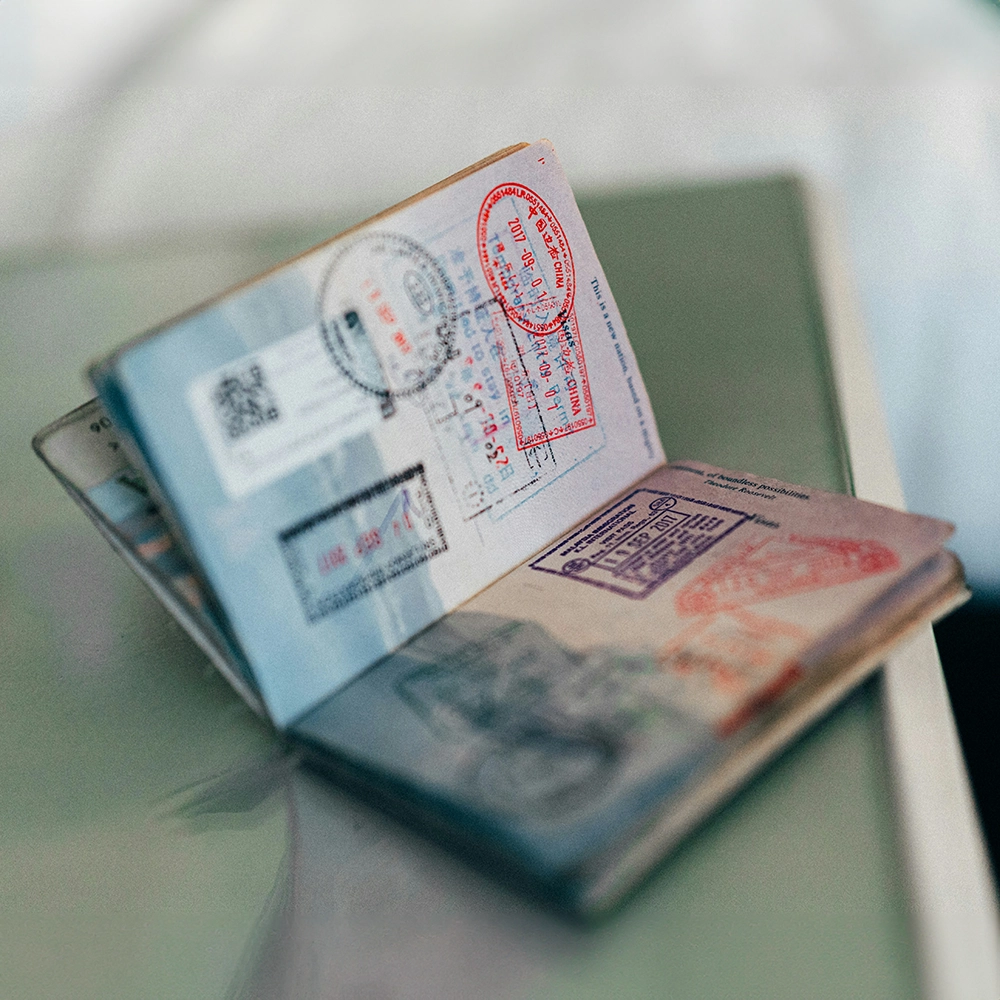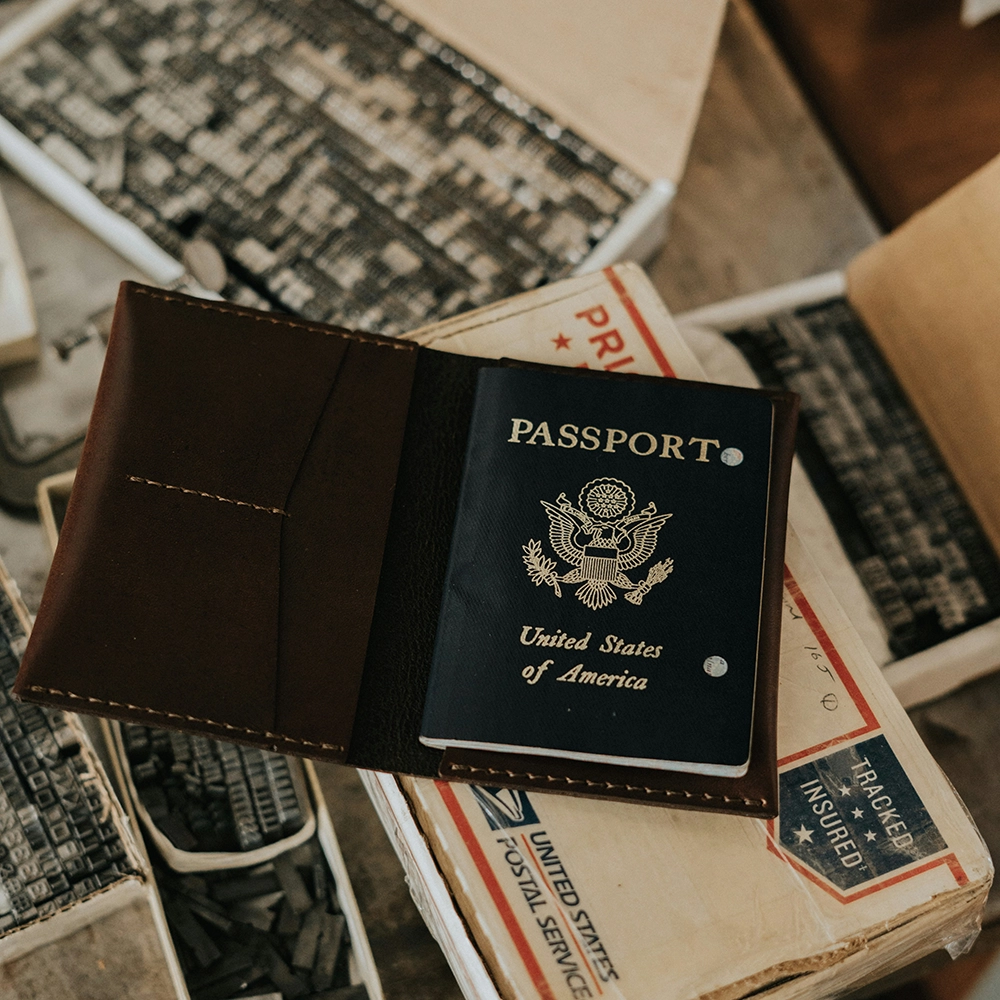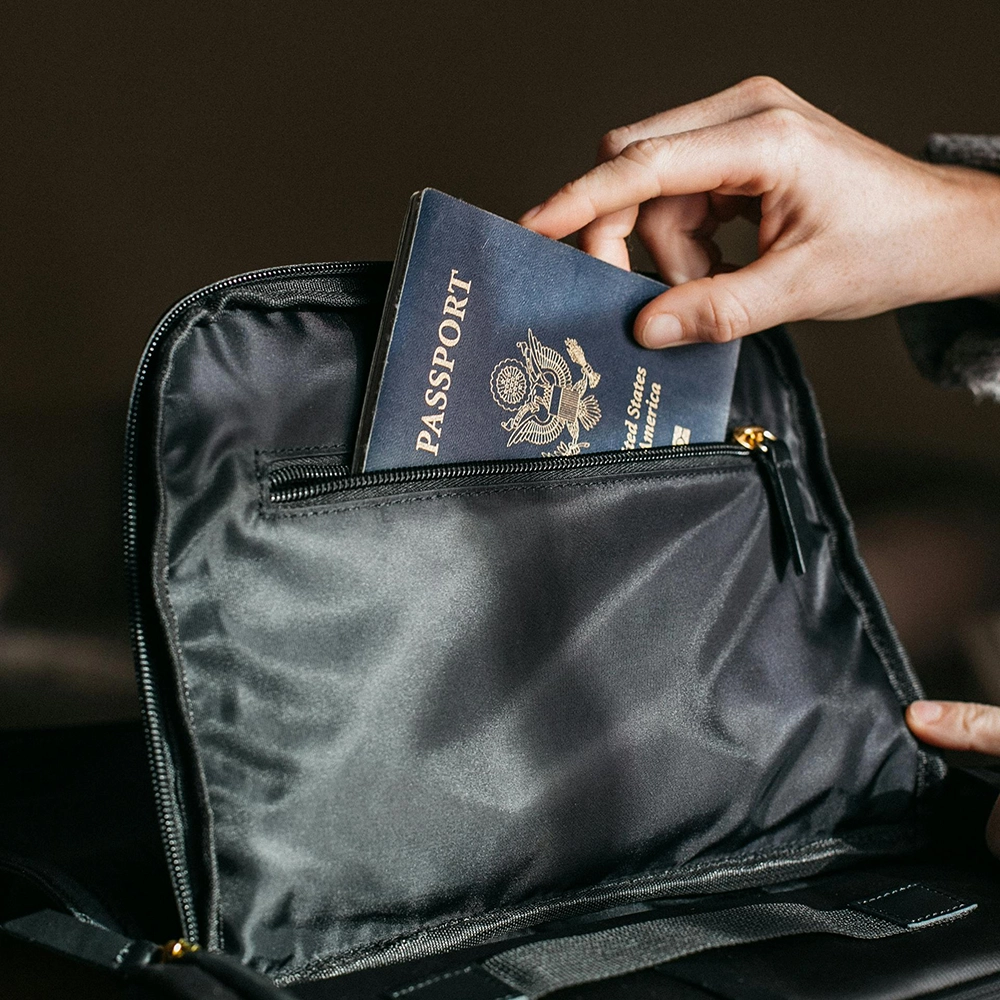You’re a world explorer! Or at least you will be as soon as you get a passport.
We have everything you need to know about getting your first U.S. passport, renewing it, and replacing it if it gets lost during your trip. Because nothing should hold you back from your next international adventure.
When Do You Need a Passport?
If you’re traveling internationally outside your home country, you’ll need a passport. You might not always need to show it at the border, such as when you’re traveling between European Union countries, but it’s still best to have one in case you need to provide identification.
Do you need a passport to go to Puerto Rico?
If you are a U.S. citizen, you do not need a passport for Puerto Rico since it is a U.S. territory. You’ll still need a valid ID to board a flight to the island, but it doesn’t have to be a passport.
Do you need a passport to go to Canada?
You must provide proof of identity and citizenship to enter Canada. For U.S. citizens, that could be either a valid U.S. passport or NEXUS card.
A NEXUS card is a membership identification card for U.S. and Canadian citizens that allows for expedited border crossing. Even if you are eligible for a NEXUS card, it is still recommended that you travel with a passport.
Do you need a passport to go to the Bahamas?
U.S. citizens visiting the Bahamas must have a valid passport book. If you are traveling to the islands by cruise, your cruise line may ask to see your passport before departure. You will also likely be asked to show your book at the port before returning to the ship after any on-land excursions.
Do you need a passport to go to Mexico?
Yes. You must have a passport to travel to Mexico. If you are arriving by air, you must have a passport book. Those entering Mexico by land can use a passport book or card. If you are going to Mexico on a cruise and plan to get off the ship at a port of call, you must have a passport.
Do you need a passport to go on a cruise?
While technically the answer is that it depends on where your cruise docks, it’s a good idea to always take your passport on a cruise. If you have a medical emergency and need to be evacuated, having your passport with you gives you more options for where you can be evacuated to.
You also never know when your cruise ship may need to dock at an alternate port. Bad weather and other unexpected events can cause ships to divert to unplanned locations. Be prepared by tossing your passport in your bag, even if you don’t think you’ll need it.
What Are the Differences Between a Passport Book Versus Card?
Both the passport book and card are forms of identification and proof of citizenship. However, there are situations in which only the book will be accepted.
If you are entering a country by air, you must have a passport book. Some countries may accept the passport card if you cross the border by land or sea.
Check with your destination country which format they require. Some countries, regardless of how you travel, will only accept passport books.
Although cards are more limited in how they can be used, they are about $100 less expensive than the book.
What Documents Do I Need for a Passport?
If you’re an adult applying for your first U.S. passport, you will need:
- Application form
- Evidence of U.S. citizenship (includes birth certificate, Consular Report of Birth Abroad or Certification of Birth, certificate of naturalization, or certificate of citizenship)
- A valid photo ID (original and a photocopy)
- Passport photo
- Except in unusual circumstances, these documents can be submitted by mail.
If you are applying for a passport for a child younger than 16 years old, you will need those same documents plus documents to prove your relationship to the child, and you must apply in person with both parents or guardians present. If both caregivers cannot apply in person, there are additional forms to prove consent to the application.
What Are Passport Photo Requirements?
Photos must be 2 inches by 2 inches in size. You can use a recent photo you already have (as long as it meets all the requirements) or get a new one taken at a local store such as CVS or Walmart.
The store will have the appropriate background and know the requirements to make sure your photo is acceptable. They will also be able to print the image in the correct size for a nominal fee.
See the U.S. State Department’s other photo requirements regarding image background and quality.
How Much Does a U.S. Passport Cost?
The cost of a passport depends on which format you choose — the book or the card — as well as your age and whether you’re getting a new passport or renewing.
If you’re applying for your first passport book, the fee for adults (16+ years) is $165. Passport books for children under 16 years old are $135.
First-time applicants for a passport card will be charged $65 for adults or $50 for children.
Alternatively, if you choose to get both the passport book and card, you get a slight price break. Adults applying for both will be charged $195, while children are $150.
The prices listed above were correct as of March 1, 2024.
How Do I Track My Passport Status?
Once you submit your application, you can check the status of your passport by enrolling in email updates. It may take a few weeks before your status moves from “Not Available” to “In Process,” so try to be patient.
How Long Does It Take to Get a U.S. Passport?
Processing times vary, and for a while following COVID, there was a big backlog that caused long wait times. Fortunately, those delays have improved. The State Department now estimates that routine processing will take six to eight weeks.
Those requesting expedited process can expect to get their new passport in about three weeks.
How Long Is a Passport Good For?
U.S. passports for travelers aged 16 and over are good for 10 years. Younger travelers must renew their passport every five years.
It’s recommended that you renew your passport at least six months before it expires. Most countries require you to have more than six months remaining on your passport in order for you to enter.
You can renew your passport even after it expires. U.S. citizens can apply for renewal if the old passport was issued within the last 15 years. If it has been longer than that, you will need to follow the same process as first-time applicants.
How to renew your U.S. passport
If your current passport has been issued within the last 15 years, it was issued after your 16th birthday, and you have never reported your passport lost or stolen, you can renew your passport by mail.
You will need to submit your current passport as well as an application form, updated photo, and the fee. If you are requesting a new passport because you’ve changed your name, also include a certified copy of the legal name change.
Passport renewal fees
Prices for renewing your passport are similar to applying for the first time. Adults renewing their passport with the processing (not expedited) will need to pay the $130 fee for passport books, $30 for cards, or $160 for both.
Renewal applications for children under the age of 16 are $135 for the passport book, $50 for the card, and $150 for both.
Do I Get My Documents Back When I Apply for a U.S. Passport?
If you renew your passport by mail, your old one will typically be returned to you. It will be sent back after you receive your new one. So don’t worry. You’ll get to hang on to all those old stamps.
Birth certificates, certified copies of name changes, and other documents will also be returned.
What Do I Do If I Lose My Passport?
Before traveling, take a photocopy or picture of your passport as a backup. You won’t be able to use it to fly or get across borders since it isn’t the official document, but it’s better than nothing. The information on that copy can help you expedite a replacement passport.
Keep the copy in a safe spot such as the inside pocket of your luggage, or save a digital version in your email or on the Cloud.
If your passport is lost or stolen during your trip, immediately notify the U.S. government. Just make sure it’s actually gone and not just misplaced in a different pocket. Once the government cancels your current passport, it’s permanently invalidated. There’s no going back, and you cannot use it for travel again.
Contact the nearest embassy or consular office. Not only will they cancel the old passport to help prevent identity theft, but they will also work with you to get a replacement.
You’ll need to provide several documents, just like when applying for a passport in the first place: a few official forms (it’s the U.S. government, after all), another passport photo, and proof of identification and citizenship. If your passport was stolen, you’ll also submit a police report.
Can Travel Insurance Protect My Passport?
If your passport is lost or stolen when you travel, there will be fees associated with replacing it. Some travel insurance plans can reimburse you for the cost of the application and processing.
Depending on the plan you purchase, you could also be covered if you have to adjust your itinerary because of your missing passport.
For example, you might not be able to continue to your next destination or return home as scheduled without your new passport. If that means you have extra trip expenses because of additional hotel stays or food, your travel insurance may be able to reimburse you for those additional costs.
Find the right travel insurance for your next international trip at SevenCorners.com. You can also contact our licensed agents with any questions or for help choosing the best coverage for you.



